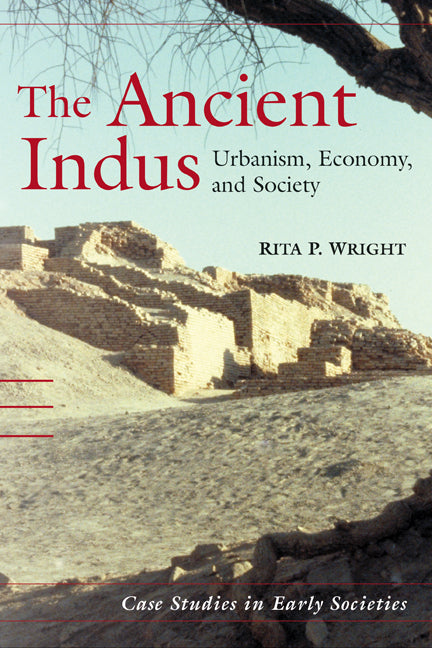Freshly Printed - allow 6 days lead
Couldn't load pickup availability
The Ancient Indus
Urbanism, Economy, and Society
In this book, Rita P. Wright draws a rich account of the ancient Indus civilisation.
Rita P. Wright (Author)
9780521576529, Cambridge University Press
Paperback, published 26 October 2009
418 pages, 55 b/w illus. 11 maps
23 x 15.3 x 2 cm, 0.546 kg
'The Ancient Indus, like other books in the Case Studies in Early Societies series, gives an excellent introduction to an important exemplar of the archaic state. Wright's accessible account of this civilization's forms and history ensures the volume's suitability for graduate and undergraduate courses dealing with South Asian culture history, comparative analyses of ancient states, and the varied methods employed in their study.' American Anthropologist
This early civilisation was erased from human memory until 1924, when it was rediscovered. Our understanding of the Indus has been partially advanced by textual sources from Mesopotamia that contain references to Meluhha, a land identified by cuneiform specialists as the Indus, with which the ancient Mesopotamians traded and engaged in battles. In this volume, Rita P. Wright uses both Mesopotamian texts but principally the results of archaeological excavations and surveys to draw a rich account of the Indus civilisation's well-planned cities, its sophisticated alterations to the landscape, and the complexities of its agrarian and craft-producing economy. She focuses principally on the social networks established between city and rural communities; farmers, pastoralists, and craft producers; and Indus merchants and traders and the symbolic imagery that the civilisation shared with contemporary cultures in Iran, Mesopotamia, Central Asia, and the Persian Gulf region. Her study emphasises the interconnected nature of early societies.
1. A long forgotten civilization
2. Geographical and environmental settings
3. From foraging to farming and pastoralism
4. An expanded world of peer polities
5. Urbanism and states: cities, regions and edge zones
6. Agrarian and craft producing economies - intensification and specialization
7. Agrarian and craft producing economies - diversification, organization of production, and exchange
8. The lure of distant lands
9. Landscapes of order and difference - the cultural construction of space, place and material access
10. The final days of urbanism and the Indus civilization: decline, transition and transformation.
Subject Areas: Prehistoric archaeology [HDDA], Archaeology [HD]


